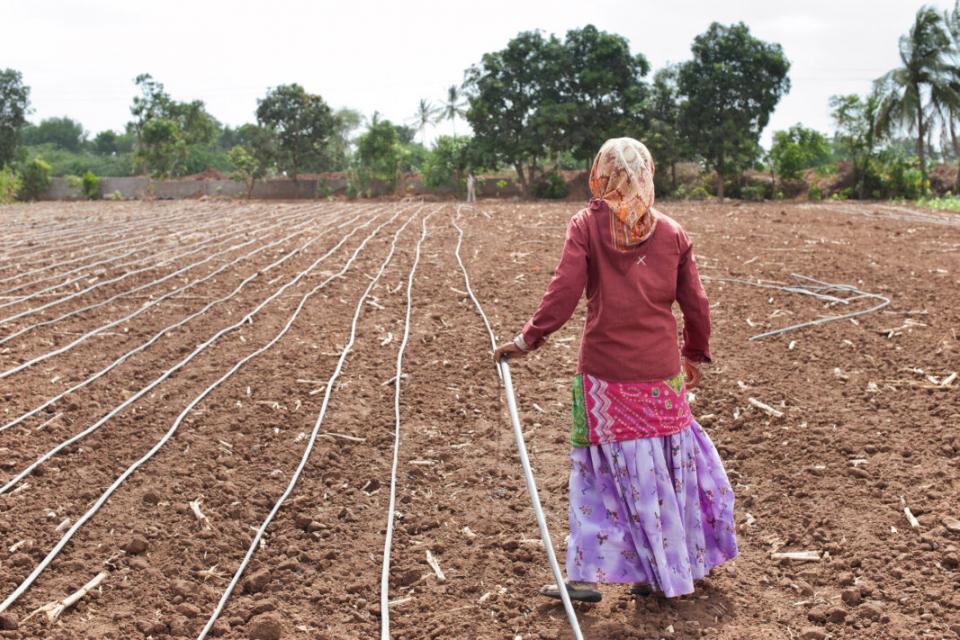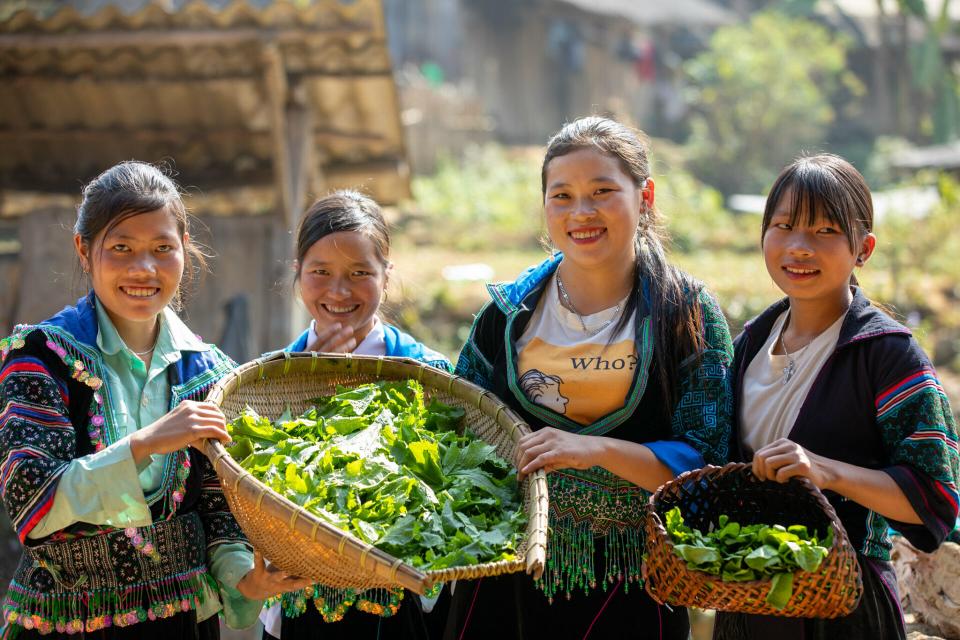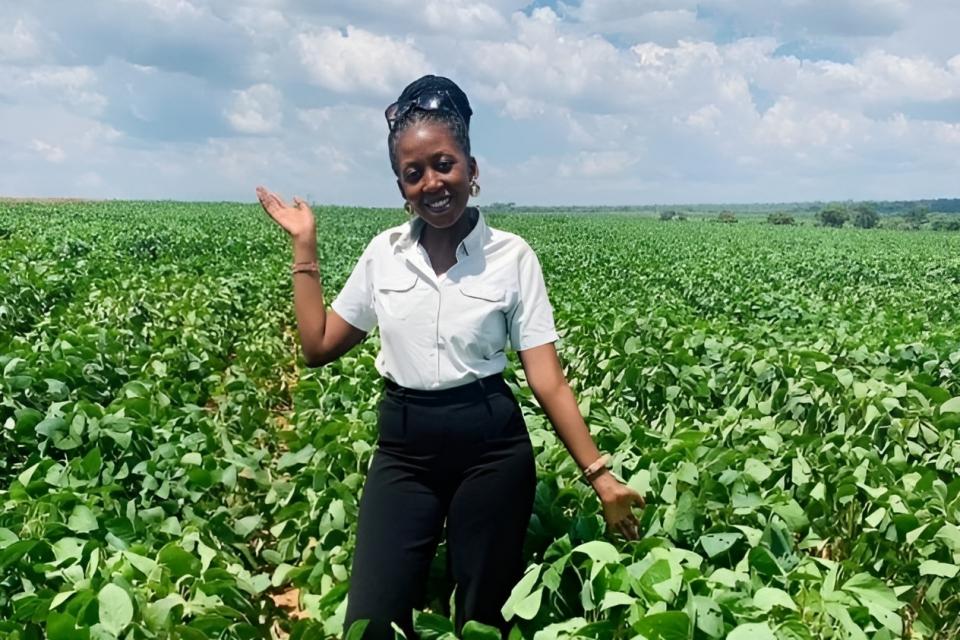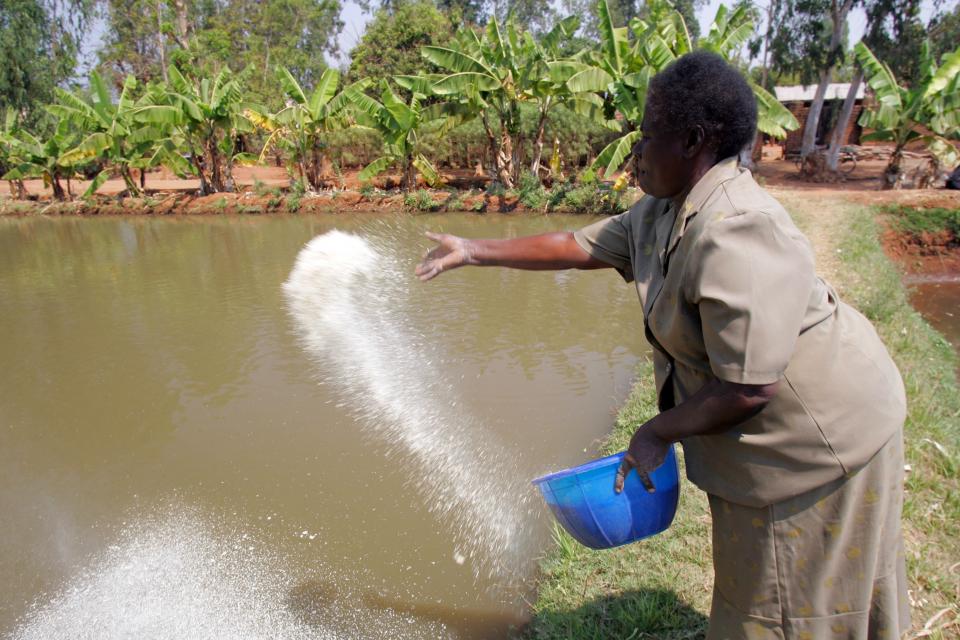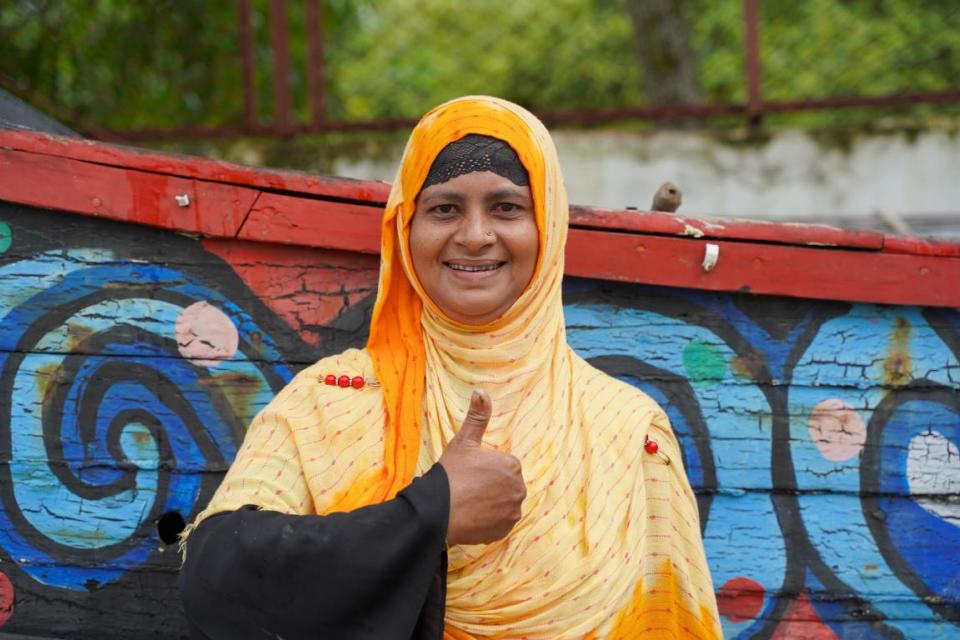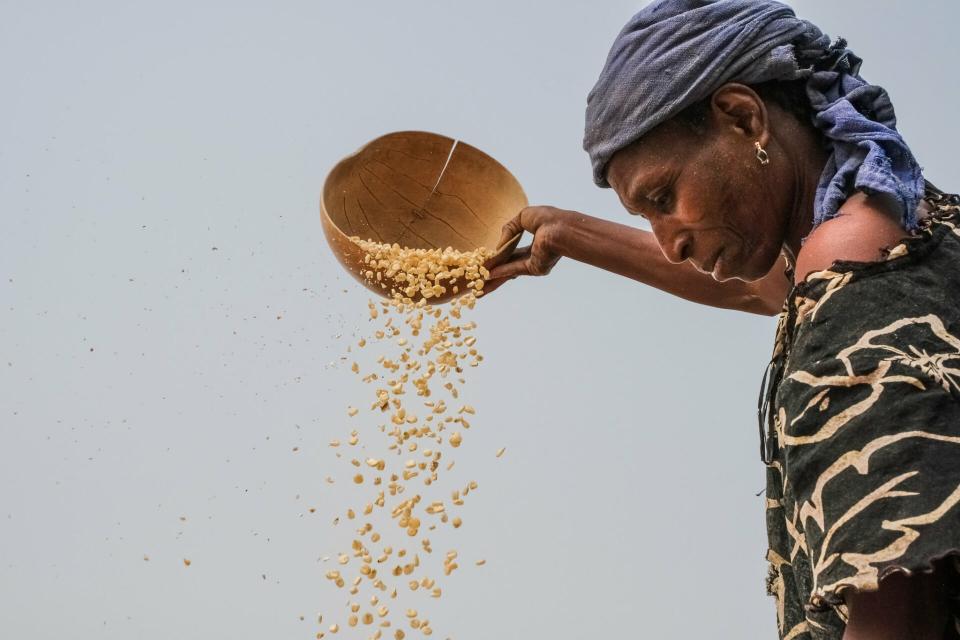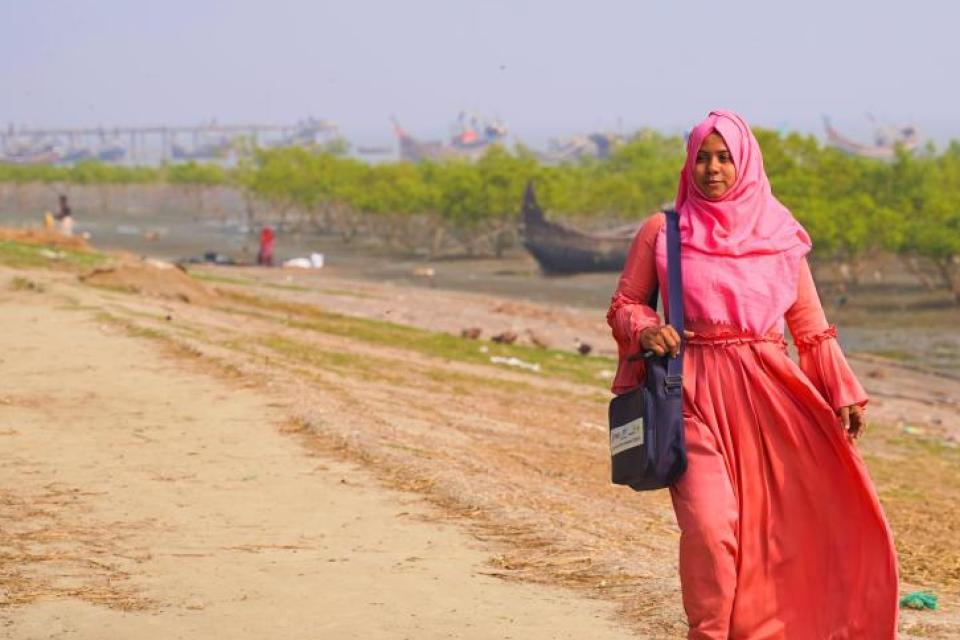International Day of Rural Women 2024
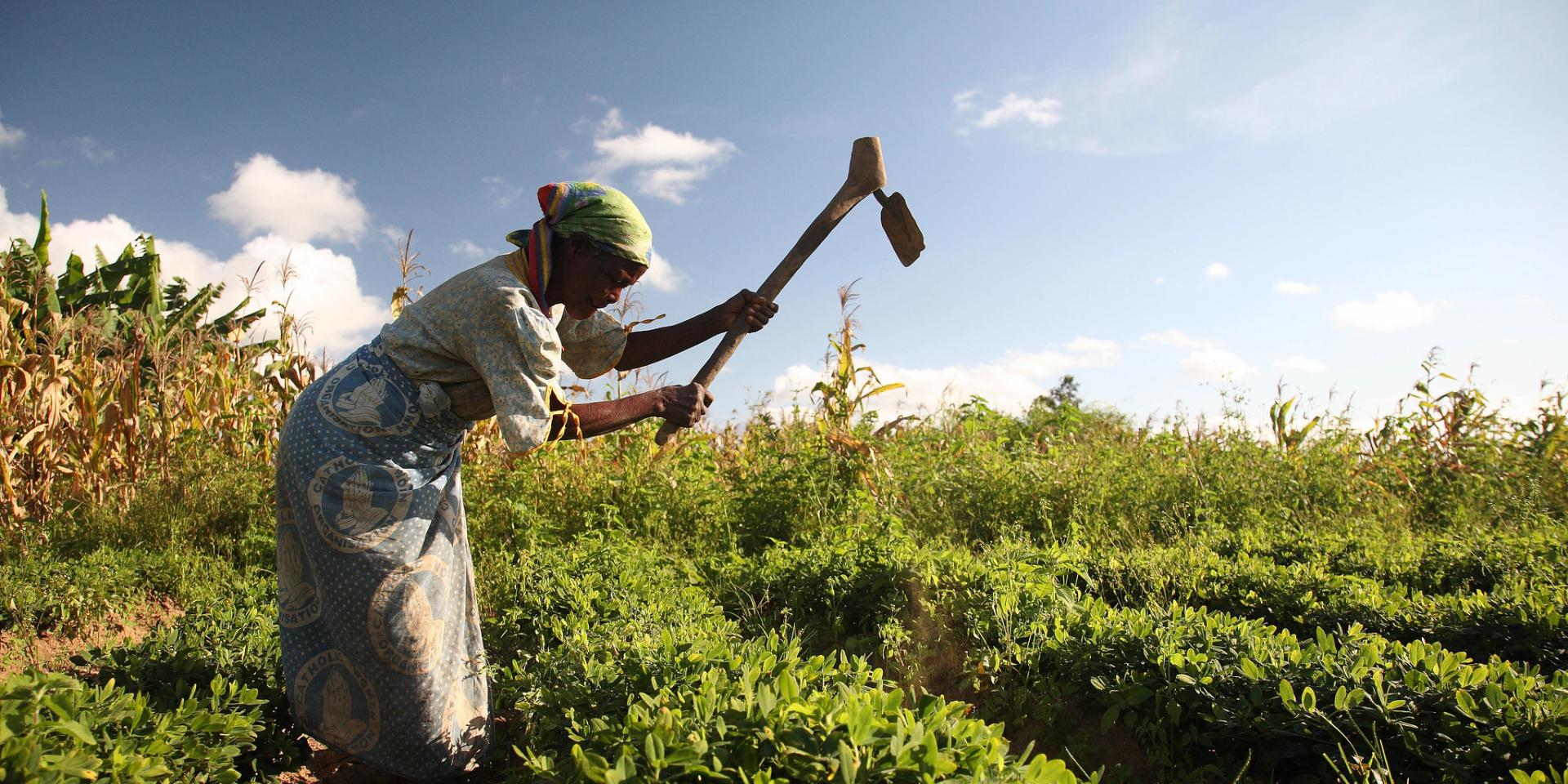
International Day of Rural Women 2024 is celebrated on 15 October. The theme for this year is is “Rural Women Sustaining Nature for Our Collective Future: Building climate resilience, conserving biodiversity, and caring for land towards gender equality and empowerment of women and girls.”
Rural women play a fundamental role in rural communities around the world as food producers, workers, processors, traders, retailers and consumers. In the lead up to this year’s International Day of Rural Women (October 15), the CGIAR GENDER Impact Platform features insights, highlights and stories from across CGIAR that showcase the key roles women play in food systems. We invite you to explore the stories below.
Forget ChatGPT – the greatest tech breakthrough would be getting cell phones to rural women

While 100 million people worldwide are using the AI chatbot ChatGPT to get ahead on homework and try out for top jobs at Google, more than 370 million women in developing countries lack the services of a simple cell phone.
The world may be witnessing a quantum leap in the digital revolution, but cell phones and mobile internet would give these women enough of a foothold to access unprecedented opportunities to improve their incomes, nutrition and health.
For rural women and girls in low-income countries who rely on small-scale agriculture, ICT can unlock financial services, training and networks, and, importantly, information and knowledge. Without these core technologies, women are farming with one hand tied behind their backs, making up just a quarter of registered users of agricultural applications in Africa.
Towards gender equality: A novel index to measure the empowerment of women in livestock keeping households

Rural women make up the majority of the world’s 600 million poor livestock keepers, and tend to do most of the day-to-day farm animal management, including the processing, marketing and selling of animal produce in some contexts. The meat, milk and eggs from their livestock are key sources of nutrition for their families, especially when they are pregnant and for their growing children.
Responding to women's challenges for fairer and more productive rice farming in Mali

In Mali, AfricaRice is disseminating gender sensitive technologies through AICCRA, using business models such as the Center for Mechanized Agriculture, Pay-As-You-Go and Saving Clubs to enhance women's access to finances, and accelerate the adoption of climate-smart agriculture and climate information services for 50,000 women to date. The large-scale adoption of such technologies could help female farmers to be fully engaged in rice production.
Women in business: Using local chicken breeds to empower African families
This video animation shows the rationale behind the ‘Women in business: chicken breed dissemination in Ethiopia and Tanzania’ project and how it supports women’s empowerment.
Five ways crop breeding can benefit rural women

Too often, agricultural progress is inhibited by innovations designed by and for men. But what would happen if women were involved in design and development? One aspect of agricultural science — crop breeding — has major potential to empower women to become the author of their lives. By making crops more climate and disease resilient, improving their community roles and livelihoods, and ensuring their preferences are incorporated into new varieties, crop breeding can set the pace for the future of women in agriculture.
ENOSURE Seed Campaign

The Work Package 6 of the Seed Equal CGIAR Initiative is leveraging the power of tailored social and behavior change communication (SBCC) campaigns to reshape attitudes and practices around access to and use of quality seed. The “Certified Seed ENOSURE” campaign is designed to inform, inspire, empower, and improve access to quality seed in the target farming communities in Uganda.
More news from CGIAR
